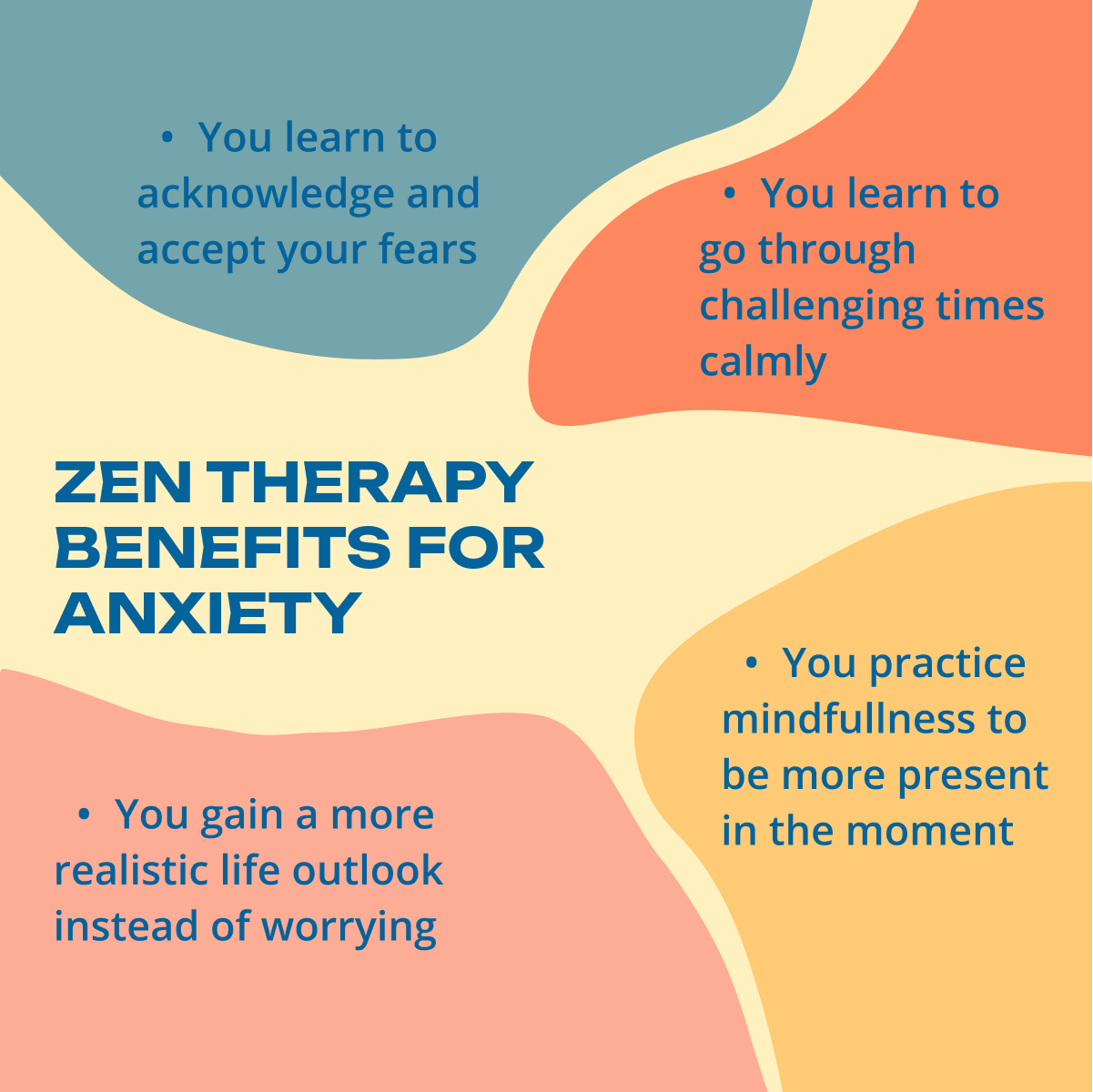We all deal with anxiety at some point in our lives. Some, though, may find it crippling. To help lessen the effects of anxiety on daily life, many rely on medications. However, changes in thoughts and behavior and gaining new coping mechanisms are other important factors that can help control anxiety.
For example,
With spiritual activities related to Zen Buddhism, like prayer or meditation, you can learn to quiet your thoughts, concentrate on the here and now, and get a better sense of direction.
Read on if you are seeking some new ways to relax your mind. The article will walk you through the Zen Buddhism techniques to help you achieve mental calmness.
Anxiety and Buddhism: How Do They Relate?
Buddhism, like other faiths, can be used as a significant system that offers a variety of strategies to improve people’s life attitudes and mental health. Zen Buddhism beliefs can assist you through behavior change, lowering stress levels, and reducing anxiety, depression, and panic attacks. (However, if such self-help techniques do not work well for your mental state, seek professional help.)
The
Being in the present moment is another important emphasis of Buddhist therapy. This kind of mindfulness exercise gradually shifts your mind from the painful past or unsettling future to where you are right now, in the present. It helps lessen some of the suffering brought on by stress, despair, or anxiety disorders.
How Zen Therapy Helps to Deal With Anxiety
The central component of Zen Buddhism can be found in the word “zen,” which means “meditation.” According to Zen philosophy, enlightenment is attained by the profound understanding that one is already an enlightened being.
Zen therapy embraces the theory and practice of Zen Buddhism. It, in turn, is focused on the particular significance of the client’s life within the universal framework, rather than with mere adjustment to or eradication of symptoms.
- You stop trying to read into everyone’s actions or guessing their thoughts. You get more focused on facts and become more open to communication.
- You liberate yourself from the worry of preconceived notions about what might happen. Instead, you focus on better planning and solving the problems more calmly if they occur.
- You divert yourself from the unceasing anxiety brought on by the habit of preconceived ideas.
Overcoming Anxiety Through Engaged Buddhism
The phrase “engaged Buddhism” was initially used by Zen teacher Thich Nhat Hanh. People can benefit from the following teachings in the present-day climate of
- Cultivate compassion. Buddhism’s “four immeasurables” are loving-kindness, compassion, joy, and serenity. According to Buddhist instructors, these four attitudes can take the place of anxious and frightening emotions. Buddhist teachings advise remembering instances of compassion, kindness, and empathy when feelings of dread or anxiety reach an unhealthy level. By returning to the emotion of caring for others, one might break the cycle of scary and depressing thoughts.
Acknowledge the fear. According to
Buddhist beliefs[5] , pain, ailment, and death are natural occurrences that should be accepted. A brief chant that states, “I am subject to age, subject to illness, subject to death,” affirms the character of reality. This chant is meant to act as a reminder that fear and uncertainty are a normal part of everyday living. You are not meant to pause your life thinking about them but get as much as possible from their existence instead.Practice mindfulness and meditation. Buddhist teachings on
mindfulness and meditation[6] are fundamental. Through body awareness, mindfulness techniques help to reduce recurring thoughts and impulsive behaviors. We might make negative predictions when we’re stressed. But, by mindfulness activities like meditation, we can teach our brains to view the approaching events more realistically, which sometimes means more optimistically as well.Use the time to reflect. Buddhist teachers claim that unsettled times might be excellent occasions to put these teachings into practice. People can use their dissatisfaction with the present to shift their outlook on life and the world. One might use challenging situations to commit to leading a more spiritual life if they are reframed as part of the spiritual journey. Give every moment your full attention. Instead of getting stuck in worries about the past or the future, be open to the feelings you are experiencing right now.
Understand our interconnections. Buddhist teachings acknowledge that everything is connected. The epidemic era offers a clear example of this. Every self-care action, such as washing hands, made a small difference to other people’s safety. When thinking from the perspective of connectivity, we become more conscious about our life values, decisions, and possible consequences.
Develop your sense of curiosity. The primary idea of Zen
Buddhist philosophy[7] , shoshin, teaches people to embrace their curiosity and see “not knowing” as a power instead of a weakness. It’s essential to allow yourself to be open to learning with a beginner’s mind. For example, you can strike up a conversation with a stranger or a coworker with whom you don’t typically interact. It’s a method of being genuinely curious about the people, situations, and viewpoints around you. Just remember that being interested doesn’t need you to ignore what you already know; it simply requires you to be open to learning more.

In Conclusion
Anxiety can alter your mental state for the worse, but this disorder can be managed and even treated completely. While psychotherapy and medications are the first choices when it comes to anxiety treatment, you can enhance their effects and improve your life quality with the practice of Zen Buddhism.
Using the above guidelines and getting more mindful can not only treat your anxiety but also turn you into a more optimistic and enthusiastic person. You just have to follow it with your heart and hope for good, and only then can you find inner peace. And if you see that your anxiety symptoms are too challenging to overcome by yourself, consider consulting our mental health professionals.












